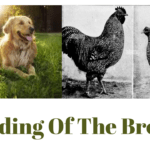Table of Contents
Introduction to Baby Parrot Care
Raising a baby parrot is an exciting and rewarding experience. As a parrot owner, you have the responsibility of ensuring your feathered friend receives proper nutrition and care. This article will guide you through the process of feeding your baby parrot and provide essential information on their nutritional needs.
Baby Parrot’s Age and Nutrition
The nutritional requirements of a baby parrot change as they grow. Knowing your parrot’s age is crucial to providing the right diet. Let’s discuss the different stages of a baby parrot’s life and their dietary needs.
1 Month Baby Parrot Food List
Formula Feeding
At one month old, your baby parrot will primarily consume a special formula made for hand-feeding baby birds. This formula is usually in powder form and should be mixed with warm water before feeding. The consistency should be similar to a thick soup.
Fruits and Vegetables
During the first month, you can also introduce small amounts of soft fruits and vegetables, such as banana, apple, and cooked carrots. Remember to finely chop or mash them to avoid choking hazards.
Protein Sources
Protein is essential for a baby parrot’s growth. Small amounts of boiled egg or cooked chicken can be added to their diet.
Homemade Food for Baby Parrot
Preparation Tips
Creating homemade food for your baby parrot is an excellent way to ensure they receive a balanced diet. Always use fresh ingredients and avoid adding salt, sugar, or any artificial additives.
Balanced Diet
A balanced diet for baby parrots includes fruits, vegetables, protein sources, and grains. In addition to the ingredients mentioned earlier, you can also provide cooked brown rice, quinoa, or barley.
Baby Parrot Feeding Schedule
Frequency of Feeding
During the first month, a baby parrot should be fed every two to three hours, around the clock. As they grow, the frequency of feeding will decrease.
Monitoring Weight
Monitoring your baby parrot’s weight is essential to ensure they are receiving adequate nutrition. A healthy weight gain indicates that they are thriving and growing as expected.
2 Month Baby Parrot Food List
Here is a list of foods suitable for a 2-month-old baby parrot:
Commercially formulated baby bird formula: This is the primary source of nutrition for baby parrots at this age. Follow the manufacturer’s instructions for preparation.
Soft fruits: Offer small pieces of mashed or pureed fruits like bananas, apples, and peaches. Ensure there are no seeds or pits.
Vegetables: Cooked and mashed vegetables such as carrots, sweet potatoes, and green beans can be introduced gradually.
Healthy grains: Offer cooked and mashed grains like rice or oatmeal to provide additional nutrients.
Soaked or sprouted seeds: Start introducing small amounts of sprouted seeds like millet or sunflower seeds. Soaking them overnight makes them easier for the baby parrot to digest.
Low-fat proteins: Offer small amounts of cooked and finely chopped chicken, turkey, or tofu for protein intake.
Calcium-rich foods: Provide sources of calcium such as crushed eggshells or cuttlebone to support healthy bone development.
Remember to consult with an avian veterinarian for specific dietary recommendations based on your baby parrot’s species and health condition.
Formula Adjustments
As your baby parrot reaches two months of age, you can gradually reduce the formula’s consistency, making it thicker. This change helps them prepare for solid foods.
Transition to Solid Food
At two months, you can start offering larger pieces of fruits and vegetables, as well as introducing small pellets designed for baby parrots. It’s crucial to monitor them during this transition to ensure they can handle the new textures.
3 Month Baby Parrot Food
A 3-month-old baby parrot can be fed a combination of formulated parrot pellets and fresh fruits and vegetables. Offer a high-quality parrot pellet as the main part of their diet, ensuring it is appropriate for their species. Additionally, provide a variety of fresh fruits and vegetables, such as apples, bananas, carrots, and leafy greens, to supplement their nutritional needs. Remember to introduce new foods gradually and monitor your baby parrot’s response to ensure they are eating well and maintaining a healthy weight.
Weaning Process
By the time your parrot is three months old, they should be weaning off the formula and transitioning to a diet primarily consisting of solid foods. You may still need to offer hand-feeding formula occasionally, but their primary diet should now be focused on solid foods.
Solid Food Options
At this stage, your parrot’s diet should include a variety of fruits, vegetables, grains, and protein sources. You can also introduce seed mixes and pellets designed for adult parrots, as long as they are appropriate for your parrot’s species.
How Many Times to Feed a Baby Parrot
Baby parrots should be fed approximately 3-4 times a day, with each feeding consisting of a small amount of a specialized parrot hand-feeding formula. It’s important to follow the instructions on the formula packaging and consult with a veterinarian for specific guidance on the feeding schedule for your particular type of parrot. Additionally, as the baby parrot grows, the number of feedings per day may gradually decrease.
Age-Based Recommendations
The frequency of feeding a baby parrot depends on their age:
- 1 month: every 2-3 hours
- 2 months: every 4-6 hours
- 3 months: 3-4 times a day
As your parrot grows and transitions to solid foods, the number of feedings will decrease.
Feeding Pahari Parrot Baby
To feed a Pahari Parrot baby, you can provide a mixture of commercial hand-feeding formulas specifically designed for parrots. Follow the instructions on the formula packaging for mixing ratios and temperature. Use a syringe or a small spoon to feed the baby bird, making sure to feed it slowly and gently. Offer the formula at regular intervals throughout the day, adjusting the volume based on the bird’s appetite and growth. It’s important to consult an avian veterinarian for proper guidance and to monitor the baby bird’s health during the feeding process.
Unique Dietary Needs
Pahari parrots, also known as Indian Ringneck Parakeets, have specific dietary needs. In addition to the general feeding guidelines mentioned earlier, ensure you provide a seed mix designed for parakeets, fresh greens, and a calcium source such as a cuttlebone or mineral block.
What Do Baby Parrots Eat at Home
Baby parrots typically eat a diet that consists of a combination of formula and solid foods. The formula is specially formulated for baby parrots and can be purchased from pet stores. It is important to feed them a balanced diet that includes fruits, vegetables, and pellets. Some suitable foods for baby parrots include mashed fruits like bananas and apples, cooked grains like rice or quinoa, and finely chopped vegetables like carrots and leafy greens. It is recommended to consult with a veterinarian or avian specialist for specific dietary recommendations for your baby parrot.
Importance of Variety
Offering a diverse diet is essential for your baby parrot’s health and well-being. Providing various fruits, vegetables, grains, and protein sources will ensure they receive all the necessary nutrients.
Foods to Avoid
Certain foods are toxic to parrots and should be avoided. These include avocado, chocolate, caffeine, and foods high in salt, sugar, or fat.
Conclusion
Feeding a baby parrot requires patience, dedication, and knowledge of their unique nutritional needs. By following the guidelines in this article, you’ll be well-equipped to provide your baby parrot with the proper nutrition for a healthy and happy life.
how to feed baby parrot
FAQs
When should I start weaning my baby parrot off formula?
Weaning starts at three months. Gradually lower formula frequency and consistency and add more solid foods.
How can I ensure my baby parrot is getting enough calcium?
Give them kale, broccoli, and a cuttlebone or mineral block for calcium.
Can I give my baby parrot tap water?
Avoid tap water pollutants by providing filtered or bottled water.
What type of pellets should I feed my baby parrot?
Choose pellets made for your parrot’s species or high-quality, all-natural pellets for newborn birds.
How do I know if my baby parrot is eating enough?
Track their weight, health, and behaviour. Consult your avian vet for any difficulties.










